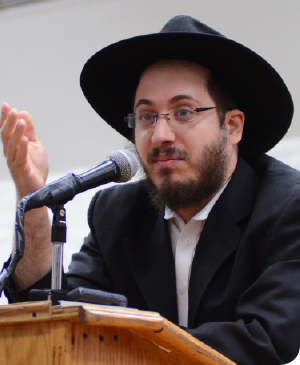 Dear Reader sh’yichyeh,
Dear Reader sh’yichyeh,
This Shabbos, Shabbos Parshas Shmini, we read Parshas Para, a section from Parshas Chukas that speaks about the purification process of the Jewish people who became impure. This parsha was read during Temple times in advance of Rosh Chodesh Nissan to remind those people who had become spiritually defiled through contact with the dead, and therefore unable to offer the Pesach-Offering, to become purified through the water containing the ashes of the Para Aduma in preparation for the upcoming holiday.
Today, though we’re unable to fulfill the Temple-related rituals in practice, we fulfill them spiritually by studying their laws in the Torah. Thus, we study and read the section of Para in preparation for the upcoming festival of Pesach.
In the Sicha of VaYakhel-P’kudei 5748, which was a year of Hakhel, and that was the week of Parshas Para, the Rebbe connects the theme of Parshas Para to Jewish unity.
Regarding the slaughtering of the Para Aduma, we find a very interesting and unique rule (BaMidbar 19:1-3): “The Lord spoke to Moses and Aaron, saying: This is the statute of the Torah which the Lord commanded, saying, ‘Speak to the children of Israel and have them take for you a perfectly red unblemished cow, upon which no yoke was laid. And you shall give it to Elazar the Kohen, and he shall take it outside the camp and slaughter it in his presence.’” Even though as a general rule other ritual sacrifices are done inside the Beis HaMikdash, this unique sacrifice was done outside of the holy encampment of the Jewish people.
This teaches us a special lesson about the Mitzva of Hakhel, gathering and uniting the Jewish people to serve Hashem. The Torah (D’varim 31:10) states: “Then, Moshe commanded them, saying, “At the end of [every] seven years…you shall read this Torah before all Israel, in their ears. Assemble the people, the men, the women, and the children, and your stranger in your cities, in order that they hear, and in order that they learn and fear the Lord, your God, and they will observe to do all the words of this Torah.”
There are many of us who are excited and motivated to gather Jewish people together to serve Hashem, as long as those people find themselves in the “Jewish camp,” i.e., have some knowledge of, interest or background in Judaism. Yet, if someone is totally out of the Jewish camp and seems to be spiritually impure, or distant, we may feel that we do not have the ability or responsibility to reach out to such a Jew.
That is the lesson of the Para Aduma: A Jew has the obligation, and therefore the ability, to bring purification even to those that seem to be “impure” and find themselves “outside the Jewish camp.” When we reach out to them as messengers of Hashem and Moshe Rabbeinu, we are able to reach them and bring them to the Beis HaMikdash. That is the true Hakhel, when no Jew will be left behind and everyone is inspired to purify himself and reach higher heights in his service of Hashem.
In addition to this beautiful connection between Parshas Para and the theme of Hakhel, Parshas Para is very connected to Moshiach.
The special Haftora for Parshas Para (Yechezkel 36:16-36) discusses G-d’s promise to purify and cleanse the Jews when He re-gathers them and returns them all to the Land of Israel during the Messianic Era. The Rambam writes (Hilchos Para Aduma, end of Ch. 3): “Moshe Rabbeinu was commanded to sacrifice the Para Aduma (Red Heifer). During the course of history, the Jewish people sacrificed nine Paros Adumos. The tenth will be sacrificed by King Moshiach, may he be speedily revealed, AMEN!”
Rabbi Avtzon is the Rosh Yeshiva of Yeshivas Lubavitch Cincinnati and is a well sought after speaker and lecturer. Recordings of his in-depth shiurim on Inyanei Geula u’Moshiach can be accessed at http://www.ylcrecording.com.